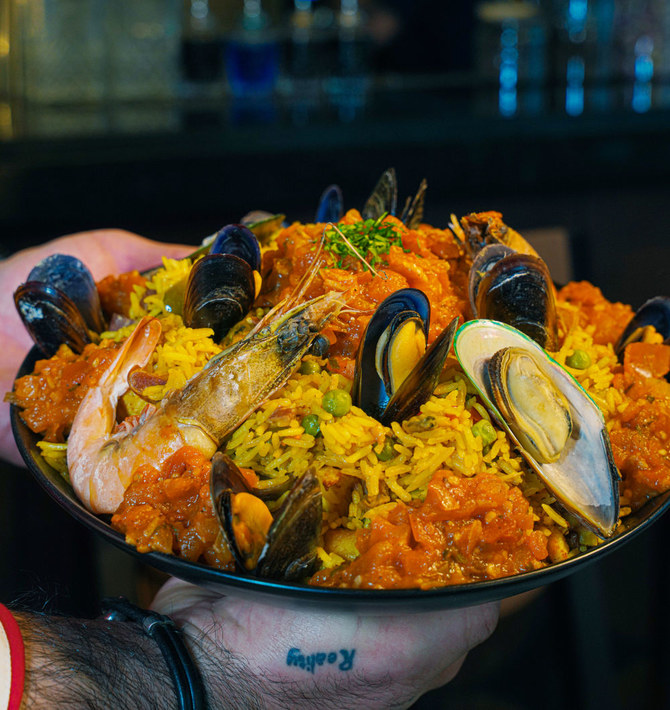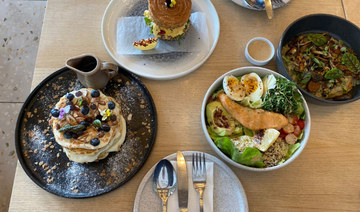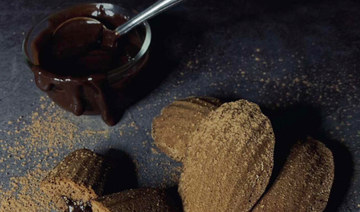Elemental officially opened up its doors on Thursday for a chance for visitors to engage in a sensuous experience involving the four elements: Earth, wind, fire and water, illustrating new and innovative food and beverage concepts.
The restaurant and modern bar concept is a high-end lounge, serving international cuisines and unique drinks — perfect for a night out with friends.
Entering the venue, visitors’ eyes go straight to the bar area, a newly introduced concept within the Saudi fine dining industry. Backdropped with locally made and internationally sourced non-alcoholic beverages, the bar serves a colorful array of smoky, sour and tangy cocktails. The decorative paintings and floor tiles all incorporate the elemental theme in clever but subtle ways.
Inspired by the fire element, the Alice in Wonderland cocktail gives a spicy kick through hints of raw red chili, demonstrating fine dining with a refreshing twist. Elemental aims to slowly introduce gastronomic concepts, such as emulsification, to the everyday Saudi diner.
A must-try is Elemental’s bartender special: Club clover, a drink inspired by a club in New York, made with homemade nonalcoholic gin. The drink includes a layer of raspberry foam made from the fruit’s natural juice, topped with a chip of pressed and dried raspberries and a spritz of edible glitter to finish.
“I love the food (in Riyadh), I love the ambience, but it’s not what I learned. To me, this isn’t high-end, it’s not fine dining,” Jihad El-Rassy, the restaurant’s founder, said.
“Fine dining food is gastronomic. It is art,” he added. With a considerable background in hospitality and a four-year degree from a Swiss institution, El-Rassy was determined to bring his passion and knowledge back to the place he grew up.
Elemental’s menu offers various dishes, from light snacks to mains, most notably the zucchini fries served with light sour and cream dip, burrata salad with surprisingly sweet hints, bresaola pizza, and autumn-infused almond-crusted chicken with a side of green apples, pumpkin and sauteed vegetable sauce.
The array of desserts is truly a wonder, from tiramisu to pain perdu. A must-try is Edmond’s favorite, a dish similar to chocolate fondant made from various types of chocolate topped with vanilla ice cream. The dish is inspired by the owner’s late grandfather, Edmond, and has become a signature at the restaurant.
Menu items are moderately priced, the most expensive being the restaurant’s own spin on paella with chicken and beef bacon bits that feeds four. A diner can comfortably have a meal with appetizers, mains, dessert and a few drinks for about SR180 ($48).
The upstairs lounge area gives a sports bar vibe, and is fully equipped with numerous screens just in time for diners to enjoy the 2022 FIFA World Cup in a comfortable space, imported German draft beer in hand — alcohol extracted.
The restaurant’s ultimate goal is to give guests an accessible but elevated experience, unlike what Saudi has seen so far, by introducing unique table service, distinctive cooking methods and fascinating drink creations while also respecting the cultural norms of the region.
















